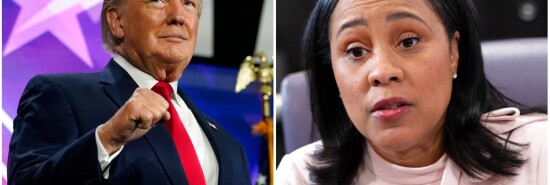
Conspiracy against the First Amendment
Conn Carroll
Video Embed
The most important thing to know whenever you see a headline about “conspiracy” charges is that the prosecutor has weak evidence and is trying to take a shortcut to conviction. Just ask Justice Robert Jackson, who wrote in 1949:
There is, of course, strong temptation to relax rigid standards when it seems the only way to sustain convictions of evildoers. But statutes authorize prosecution for substantive crimes of evildoing without the dangers to the liberty of the individual and the integrity of the judicial process that are inherent in conspiracy charges. We should disapprove the doctrine of implied or constructive crime in its entirety and in every manifestation.
Judge Learned Hand voiced similar concerns just nine years earlier:
So many prosecutors seek to sweep within the drag-net of conspiracy all those who are associated in any degree whatever with the main offenders. That there are opportunities of great oppression in such a doctrine is very plain, and it is only by circumscribing the scope of such all comprehensive indictments that they can be avoided.
WRAY LIED ABOUT NOT TARGETING CATHOLICS
The crime of conspiracy is not like other crimes. Normally, criminal law is concerned with the punishment of acts that have produced harmful consequences. Not conspiracy. All that is needed to get a conspiracy conviction is evidence of: 1) an agreement, 2) between two or more people, and 3) an act in furtherance of that agreement.
Importantly, that act can be extremely minor, including just a nod of the head, or, more recently, a single text to a lawmaker asking for another lawmaker’s phone number.
As University of Texas law professor David Filvaroff once wrote, “One of the legal weapons used in the traditionally unequal contest between government and dissent has been the doctrine of criminal conspiracy.”
Conspiracy law was used to convict people protesting the draft during World War I and members of the Communist Party during the Cold War.
“Reliance on conspiracy holds a number of familiar attractions for the prosecutor,” Filvaroff continues. “The application of the conspiracy label serves to brand the opposing group with an image of secrecy and evil plotting that tends to exaggerate the threat of the challenged conduct and heightens apprehensions in the latent community.”
The danger of using conspiracy charges in the political context is that the standard for an “act in furtherance of the conspiracy” is so low that virtually every person who voices support for an unpopular political cause could easily be found guilty of being part of the conspiracy.
Did you attend the Jan. 6 rally, organized by President Donald Trump, to try and convince Vice President Mike Pence to block the certification of the Electoral College results? Because attending that rally is definitely an “act in furtherance of the conspiracy.”
What about sending a tweet, also urging Pence to block certification? How is that not also an “act in furtherance of the conspiracy”?
CLICK HERE TO READ MORE FROM THE WASHINGTON EXAMINER
To be clear, I firmly believe that Pence had no power under the Constitution to block certification of the Electoral College results. But does that mean people who disagree should be thrown in jail?
Because that is where the logic of the Georgia and Jack Smith indictments leads.
